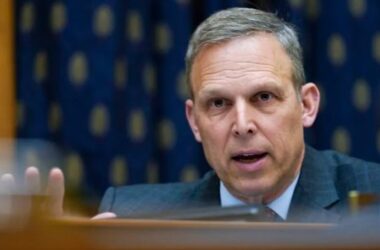President Bola Tinubu has officially approved the “Renewed Hope Nigeria First” procurement policy, a move designed to prioritize Nigerian products, services, and expertise in all federal spending.
This development follows a meeting of the Federal Executive Council (FEC) held on Monday, May 5, 2025, at the Aso Rock Villa in Abuja.
Minister of Information and National Orientation, Mohammed Idris, shared the update with journalists shortly after the FEC meeting.
According to Idris, the newly adopted directive ensures that every naira spent by the government supports the local economy and Nigerian talent. “It puts Nigeria at the centre of every kobo the government spends,” he noted.
Idris also revealed that the President’s directive would soon be backed by an Executive Order, giving it full legal weight. The draft of this order is currently being prepared by the Attorney-General of the Federation, Lateef Fagbemi.
The Nigeria First policy is set to transform how public funds are spent. It mandates that all federal ministries, departments, and agencies (MDAs) must prioritize local suppliers and service providers when making purchases or awarding contracts. If a Nigerian alternative exists, it must be chosen over any foreign option, eliminating unnecessary imports.
“Going forward, any business to be done by the government must place Nigerians first. If a local option exists, there is no reason whatsoever to import,” Idris stated.
As part of the plan’s enforcement, the Bureau of Public Procurement (BPP) has received orders to revise procurement guidelines. The BPP will now oversee the creation of a Local Content Compliance Framework, maintain a list of trusted local suppliers, and ensure procurement officers follow the new rules strictly across all government bodies.
MDAs are also barred from buying any foreign good or service that can already be sourced within Nigeria. Should there be no local alternative, the new policy insists on clauses in contracts that support local skills training, domestic manufacturing, or technology transfer. These steps mirror Nigeria’s Sugar Master Plan, which rewards companies for investing in local production.
In line with the directive, MDAs have been given a deadline to review and adjust their 2025 procurement plans to match the new standard. Any exception to the rule must be cleared with a written waiver from the BPP.
“No procurement of foreign goods or services already available in Nigeria shall proceed without justification and a BPP waiver,” the policy directive reads. “Where no local option exists, contracts must include provisions for technology transfer, local production or skills development,” it further stated.










